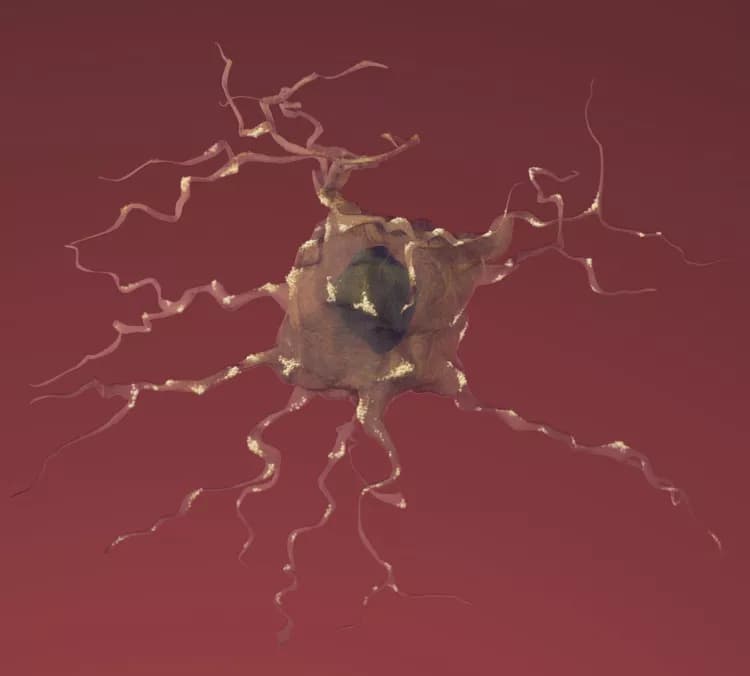
Skin Stem Cells Used To Generate New Brain Cells
Using human skin cells, University of California, Irvine neurobiologists and their colleagues have created a method to generate one of the principle cell types of the brain called microglia, which play a key role in preserving the function of neural networks and responding to injury and disease.
The finding marks an important step in the use of induced pluripotent stem (iPS) cells for targeted approaches to better understand and potentially treat neurological diseases such as Alzheimer's. These iPS cells are derived from existing adult skin cells and show increasing utility as a promising approach for studying human disease and developing new therapies.
Skin cells were donated from patients at the UCI Alzheimer's Disease Research Center. The study, led by Edsel Abud, Wayne Poon and Mathew Blurton Jones of UCI, used a genetic process to reprogram these cells into a pluripotent state capable of developing into any type of cell or tissue of the body.
The researchers then guided these pluripotent cells to a new state by exposing the cells to a series of differentiation factors which mimicked the developmental origin of microglia. The resulting cells act very much like human microglial cells. Their study appears in the current issue of Neuron.
In the brain, microglia mediate inflammation and the removal of dead cells and debris. These cells make up 10- to 15-percent of brain cells and are needed for the development and maintenance of neural networks.
"Microglia play an important role in Alzheimer's and other diseases of the central nervous system. Recent research has revealed that newly discovered Alzheimer's-risk genes influence microglia behavior. Using these cells, we can understand the biology of these genes and test potential new therapies," said Blurton-Jones, an assistant professor of the Department of Neurobiology & Behavior and Director of the ADRC iPS Core.
"Scientists have had to rely on mouse microglia to study the immunology of AD. This discovery provides a powerful new approach to better model human disease and develop new therapies," added Poon, a UCI MIND associate researcher.
Along those lines, the researchers examined the genetic and physical interactions between Alzheimer's disease pathology and iPS-microglia. They are now using these cells in three-dimensional brain models to understand how microglia interact with other brain cells and influence AD and the development of other neurological diseases.
"Our findings provide a renewable and high-throughput method for understanding the role of inflammation in Alzheimer's disease using human cells," said Abud, an M.D./Ph.D. student. "These translational studies will better inform disease-modulating therapeutic strategies."
Materials provided by University of California - Irvine. Note: Content may be edited for style and length.
Disclaimer: DoveMed is not responsible for the accuracy of the adapted version of news releases posted to DoveMed by contributing universities and institutions.
Primary Resource:
Abud, E. M., Ramirez, R. N., Martinez, E. S., Healy, L. M., Nguyen, C. H., Newman, S. A., ... & Caraway, C. A. (2017). iPSC-Derived Human Microglia-like Cells to Study Neurological Diseases. Neuron, 94(2), 278-293. DOI: 10.1016/j.neuron.2017.03.042
Related Articles
Test Your Knowledge
Asked by users
Related Centers
Related Specialties
Related Physicians
Related Procedures
Related Resources
Join DoveHubs
and connect with fellow professionals

0 Comments
Please log in to post a comment.